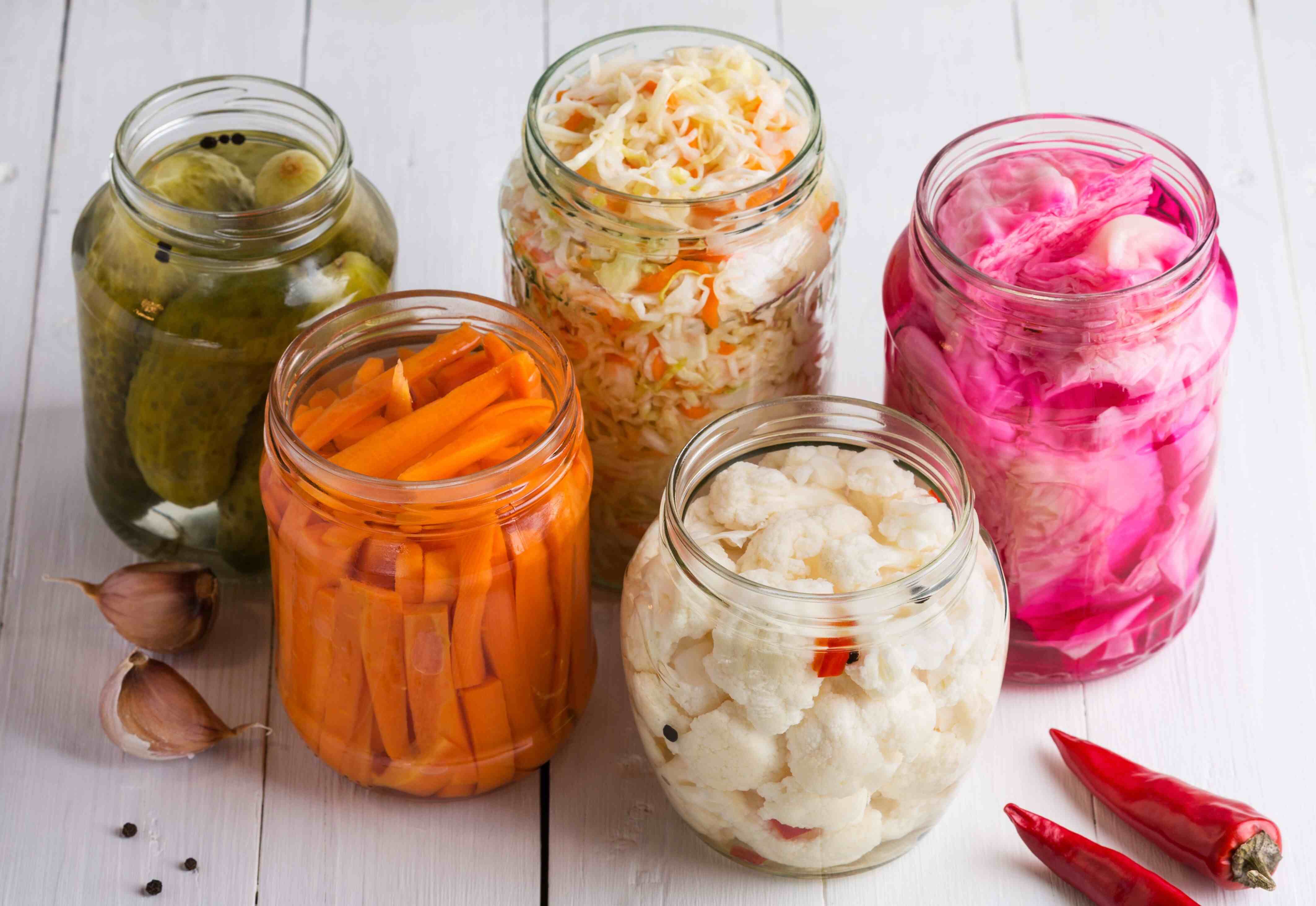
Fermentation is a process that has been around for thousands of years, transforming simple ingredients into delicious, complex foods and beverages. But what exactly is fermentation? In simple terms, it's a metabolic process where microorganisms like yeast and bacteria convert sugars into alcohol, gases, or acids. This ancient technique not only preserves food but also enhances its flavor, texture, and nutritional value. From the tangy taste of yogurt to the bubbly fizz of kombucha, fermentation plays a crucial role in many of our favorite foods. Ready to dive into the fascinating world of fermentation? Here are 29 facts that will make you appreciate this age-old process even more.
What is Fermentation?
Fermentation is a fascinating process that has been used by humans for thousands of years. It involves the conversion of carbohydrates into alcohol or organic acids using microorganisms like yeast or bacteria. This process not only preserves food but also enhances its flavor and nutritional value.
- Fermentation is one of the oldest food preservation methods, dating back to 6000 BC.
- The word "fermentation" comes from the Latin word "fervere," which means "to boil," because the process was first observed as bubbling in liquids.
- Yeast is the most common microorganism used in fermentation, especially in bread, beer, and wine production.
- Lactic acid bacteria are crucial for fermenting dairy products like yogurt and cheese.
- Fermentation can occur naturally, but controlled fermentation is often used to ensure consistent results.
Types of Fermentation
There are several types of fermentation, each with its unique characteristics and applications. Understanding these types can help you appreciate the diversity and complexity of fermented foods and beverages.
- Alcoholic fermentation is used to produce beer, wine, and spirits.
- Lactic acid fermentation is essential for making yogurt, sauerkraut, and kimchi.
- Acetic acid fermentation is responsible for creating vinegar.
- Butyric acid fermentation is less common but is used in some types of cheese and silage.
- Propionic acid fermentation is used in Swiss cheese production, giving it its characteristic holes and flavor.
Benefits of Fermentation
Fermentation offers numerous benefits, from improving food safety to enhancing nutritional content. These advantages make fermented foods a valuable addition to any diet.
- Fermentation can increase the shelf life of perishable foods.
- It can enhance the flavor and texture of foods, making them more enjoyable to eat.
- Fermented foods are often easier to digest because the fermentation process breaks down complex carbohydrates and proteins.
- Fermentation can increase the bioavailability of nutrients, making them easier for the body to absorb.
- Some fermented foods contain probiotics, which can promote gut health and boost the immune system.
Fermentation in Different Cultures
Fermentation is a global phenomenon, with each culture having its unique fermented foods and beverages. These traditional practices highlight the versatility and importance of fermentation in human history.
- In Japan, miso and soy sauce are staple fermented foods.
- Korea is famous for its kimchi, a spicy fermented vegetable dish.
- Germany is known for sauerkraut, a fermented cabbage dish.
- In Ethiopia, injera, a fermented flatbread, is a dietary staple.
- In Mexico, pulque, a fermented agave drink, has been consumed for centuries.
Modern Applications of Fermentation
While traditional fermentation methods are still widely used, modern science has expanded the applications of fermentation. These innovations have led to new products and improved processes.
- Fermentation is used in the production of biofuels, such as ethanol.
- It plays a crucial role in the pharmaceutical industry for producing antibiotics and vaccines.
- Fermentation is used in biotechnology to produce enzymes and other bioactive compounds.
- The food industry uses fermentation to develop new flavors and textures in products like plant-based meats.
- Fermentation is being explored as a method for waste management and environmental sustainability.
Fun Facts About Fermentation
Fermentation is not just a scientific process; it's also full of interesting and surprising facts. These tidbits can make you appreciate the magic of fermentation even more.
- Kombucha, a fermented tea, has been consumed for over 2,000 years and is believed to have originated in China.
- The world's oldest known fermented beverage is a 9,000-year-old Chinese drink made from rice, honey, and fruit.
- Some cheeses, like Roquefort and Gorgonzola, are made using molds that contribute to their unique flavors and textures.
- Tempeh, a fermented soybean product from Indonesia, is a rich source of protein and probiotics.
Fermentation Facts: The Final Scoop
Fermentation isn't just about making beer or wine. It's a fascinating process that transforms food, enhances flavors, and boosts health. From ancient civilizations using it to preserve food to modern kitchens experimenting with new recipes, fermentation has always been a part of human culture. It creates probiotics, which are great for gut health, and can even make nutrients more accessible. Plus, fermented foods like kimchi, sauerkraut, and yogurt are delicious!
Understanding fermentation helps appreciate the science behind some favorite foods. Whether you're a foodie, a science enthusiast, or just curious, there's always something new to learn about this age-old process. So next time you enjoy a slice of sourdough bread or a tangy pickle, remember the magic of fermentation working behind the scenes. Dive into the world of fermentation and discover its wonders for yourself!
Was this page helpful?
Our commitment to delivering trustworthy and engaging content is at the heart of what we do. Each fact on our site is contributed by real users like you, bringing a wealth of diverse insights and information. To ensure the highest standards of accuracy and reliability, our dedicated editors meticulously review each submission. This process guarantees that the facts we share are not only fascinating but also credible. Trust in our commitment to quality and authenticity as you explore and learn with us.


